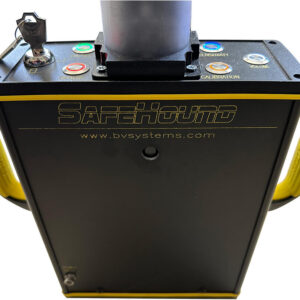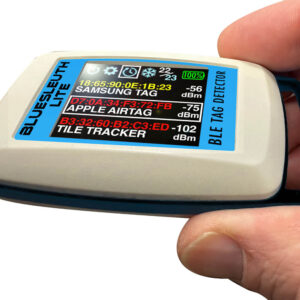Your cart is currently empty!
Banning Inflight Electronic Devices Is Easier Said Than Done

This week, US and British officials announced strict new security policies affecting travelers across 10 airports originating from 8 Muslim majority countries. The Washington Post reports that by March 25, all passengers flying out of these countries and airports must check in their laptops, tablets, cameras, portable DVD players and gaming systems and other large electronic devices including some smartphone models. They will not be permitted to board the plane with any of these items in carry-on bags. Officials said the new rules will affect passengers who travel on roughly 50 daily flights from a range Crew members are not included in this device ban. But is this sudden ban on inflight electronic devices based on real threat intelligence or simply security theater?
The Threat Picture
You may recall that for over the past decade, a standing ban on liquids over 3.4 ounces has been imposed for all carry-on bags. This liquid limitation ban was based on real intelligence and was implemented suddenly. Similarly, this new ban on electronics seems to be motivated by actionable, albeit unknown security intel, and appears to be a reaction to specific threats.
“It seems fairly urgent,” says James Norton, a homeland security consultant at the Department of Homeland Security at the time the liquid ban went into effect. “My initial reaction is this is based on some sort of information that the intelligence community came across as a whole. They are trying to address it working with the airlines and the countries directly trying to implement some sort of a plan.”
While the suddenness of this electronics ban does mirror recent travel bans imposed by the Trump administration, the specificity is much more focused on specific plans of attack as opposed to the current administration’s sweeping travel ban. When law enforcement possesses actionable intel or threats, they are in the best position to defend the public.
Former TSA administrator, John Pistole sees the carry-on limitations as “both an actual physical deterrent and an overall deterrent so the bad guys see this and say, ‘They’re onto us.’ That’s a win for the good guys because then you have time to push the terrorists off to another location, another time, another type of attack. It gives law enforcement and security services more opportunity to identify and disrupt plots.”
Threat Detection
So what about the array of metal detection and body scanners we are all subjected to at TSA security checkpoints? Surely they would detect unauthorized electronics that could be used as triggers for bombs and I.E.D.s? Not according to Scott Schober, Wireless and Cybersecurity Expert and CEO of security firm Berkeley Varitronics Systems.
“Modern smartphones, tablet and laptops actually contain very little metal that is detectable. So we’re starting to see a shift away from standard metal detection to things like advanced ferro-magnetic detection systems in the security industry,” says Schober. Ferro-magnetic detectors contain highly sensitive arrays that measure the slightest changes to the Earth’s magnetic field to detect the presence of trace ferrous items commonly found in all electronic devices.
In an abstract studying post 911 airport security entitled Up in the Air: An Analysis of Airport Security, John Pistole asks, “The bottom line is how do we best provide for the security of the traveling public in light of a determined enemy who is adept at constructing well-designed, well-concealed devices which would not show up in a walk-through metal detector? We’re trying to employ the best technology to identify any possible threat.”
“The challenge is to balance security without making it impossible to fly,” Michael Chertoff, the former Homeland Security secretary said regarding threats to aircraft from explosive devices and concerns about screening at the targeted airports.
Of course allowing passengers to check their electronic devices in the belly of an aircraft raises other concerns that these TSA restrictions do not appear to address. With all those Lithium-Ion batteries stored away from terrorists, passengers still face the distinct possibility of some devices spontaneously bursting into flames as we’ve seen from Samsung’s flawed Galaxy Note 7 phone.
Whatever the DHS, TSA and other security agencies know, they are not sharing with the population nor the terrorists. We can only hope that the inconvenience and profiling ultimately save lives. But where threat intelligence ends, threat detection must take over.

Scott Schober
CEO | Author | Speaker at Berkeley Varitronics Systems
Scott Schober presents at cybersecurity and wireless security conferences for banking, insurance, transportation, construction, telecommunications and law enforcement industries. He has overseen the development of dozens of wireless test, security, safety and cybersecurity products used to enforce a “no cell phone policy” in correctional, law enforcement, and secured government facilities. Scott regularly appears on network news programs including Fox, Bloomberg, Good Morning America, CNN, MSNBC, NPR and many more. He is the author of 'Senior Cyber', 'Cybersecurity is Everybody's Business' and 'Hacked Again', the “original hacker’s dictionary for small business owners” - Forbes Magazine.
Our Newsletter
Lorem ipsum dolor sit amet, consectetur adipiscing elit. Aliquam mattis ligula vitae leo scelerisque, sit amet feugiat ex venenatis.
"*" indicates required fields
Latest Posts
Our Best Sellers
How can we help?
Lorem ipsum dolor sit amet, consectetur adipiscing elit. Nunc dictum aliquet justo sit amet consectetur. In tempor lobortis ante vitae ornare. Praesent feugiat magna at tempor consequat. Aenean in iaculis libero, aliquam imperdiet mi.









Leave a Reply